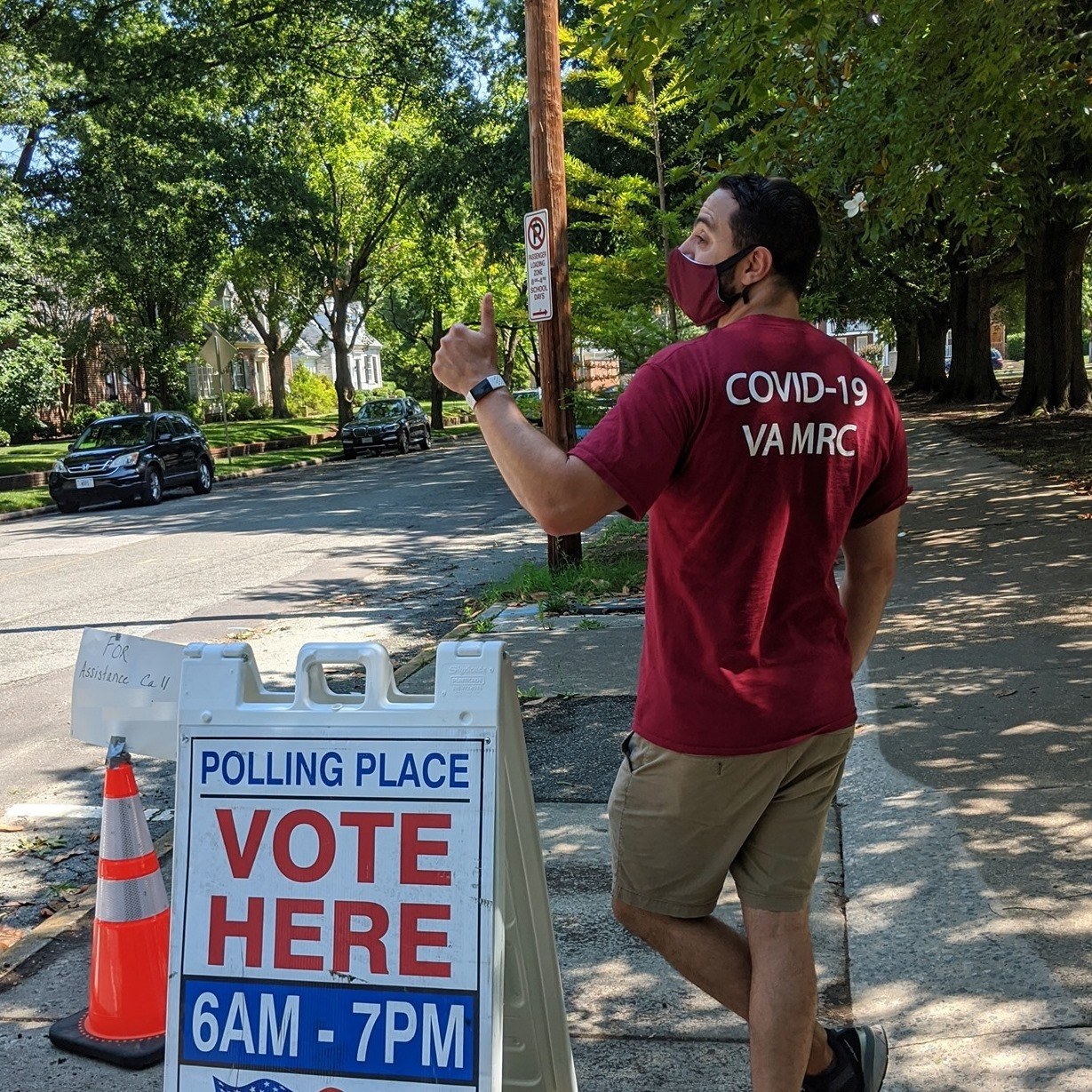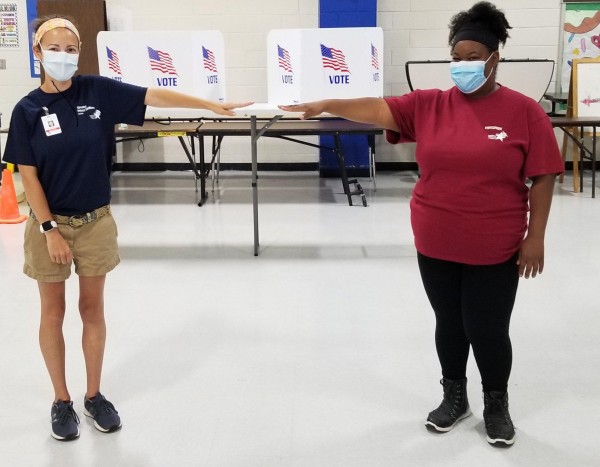When Virginians headed to the polls on June 23 they were met by 662 Infection Prevention Ambassadors, Medical Reserve Corp (MRC) volunteers who were there to encourage, educate, and provide guidance around safe voting amidst the COVID-19 pandemic.
These volunteers not only encouraged mask wearing and social distancing by voters, but also reviewed proper mask wearing with poll workers, provided facility assessments (advising on traffic flow, how to eliminate cross traffic, and ways to improve air flow in polling places), and identified other strategies to help protect voters and poll workers by making the voting experience as contactless as possible.

For the localities served by the Henrico and Chickahominy MRC and Richmond City MRC, volunteers served in two ways. Some took 4.5 hour shifts at specific polling places while others did check-ins with six to seven different polling locations during a volunteer shift. These different formats helped the MRCs to maximize their nearly 100 volunteers supporting polling places across five localities.
“Overall, we were received really well,” said Henrico and Chickahominy MRC Unit Leader Alyssa Lewis. Volunteers also “really enjoyed being part of this. They’re looking forward to the fall [elections].”
The MRC implemented several strategies to help make this largest single-day deployment of volunteers in Virginia MRC history possible.
- Infection Prevention Ambassadors were deployed on a smaller scale during May municipal elections. Lessons learned from this deployment were applied in June.
- The Virginia MRC worked closely with the Department of Elections throughout the planning and volunteer deployment, ensuring that consistent messaging was coming out from the MRC and the Department of Elections.
- All election registrars in the state used one website to request Infection Prevention Ambassadors. This site collected all the necessary information which was then forwarded to the appropriate MRC leader.
- The MRC held a Saturday morning statewide volunteer training via Zoom which included the chief deputy for the Department of Elections, the state volunteer coordinator for the MRC, and an infection specialist. The training was recorded.
- Volunteers received a job action sheet and checklist to use on election day.
- A letter of authorization and introduction was provided for volunteers to take to the polls.
To help ensure a successful experience, Virginia MRC State Volunteer Coordinator Jennifer Freeland advises to “manage expectations around the of role of Infection Prevention Ambassador. Make sure poll workers understand the ambassador’s role. Clearly define the role the MRC will play and make sure there’s consistent messaging of what volunteers can and cannot do.”
Lewis advises to reach out to those election officials who express interest in hosting Infection Prevention Ambassadors for the November general elections as soon as possible to give yourself enough time to recruit and plan for volunteers.
Both Freeland and Lewis are already looking ahead to the fall elections and the potential of an even larger deployment of volunteers. Freeland also sees the usefulness of this ambassador model in other applications in the community including schools.
For additional information, contact [email protected].









